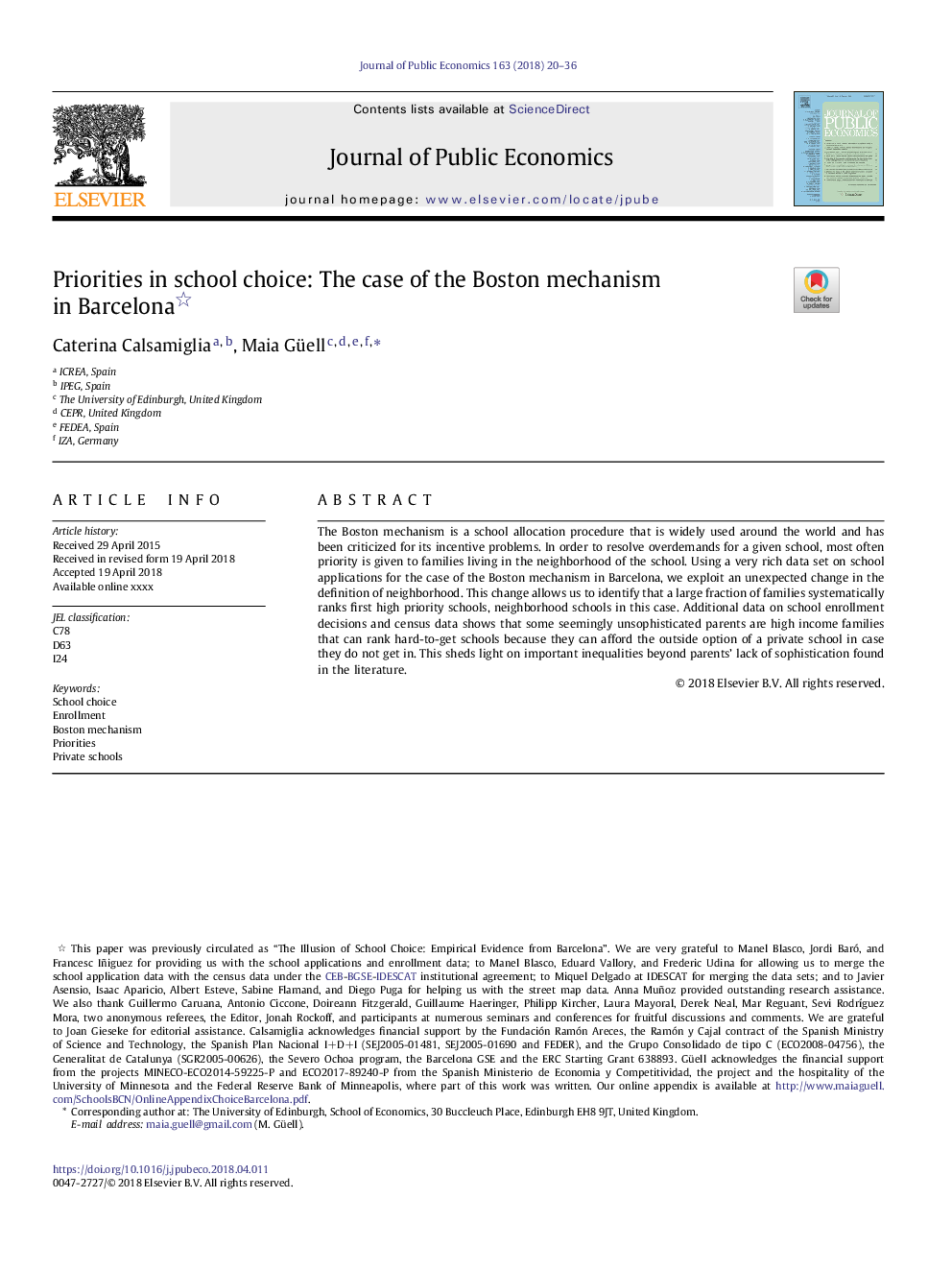| Article ID | Journal | Published Year | Pages | File Type |
|---|---|---|---|---|
| 7369340 | Journal of Public Economics | 2018 | 17 Pages |
Abstract
The Boston mechanism is a school allocation procedure that is widely used around the world and has been criticized for its incentive problems. In order to resolve overdemands for a given school, most often priority is given to families living in the neighborhood of the school. Using a very rich data set on school applications for the case of the Boston mechanism in Barcelona, we exploit an unexpected change in the definition of neighborhood. This change allows us to identify that a large fraction of families systematically ranks first high priority schools, neighborhood schools in this case. Additional data on school enrollment decisions and census data shows that some seemingly unsophisticated parents are high income families that can rank hard-to-get schools because they can afford the outside option of a private school in case they do not get in. This sheds light on important inequalities beyond parents' lack of sophistication found in the literature.
Related Topics
Social Sciences and Humanities
Economics, Econometrics and Finance
Economics and Econometrics
Authors
Caterina Calsamiglia, Maia Güell,
